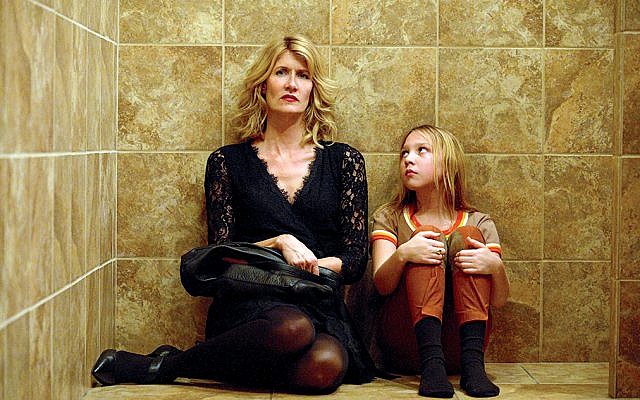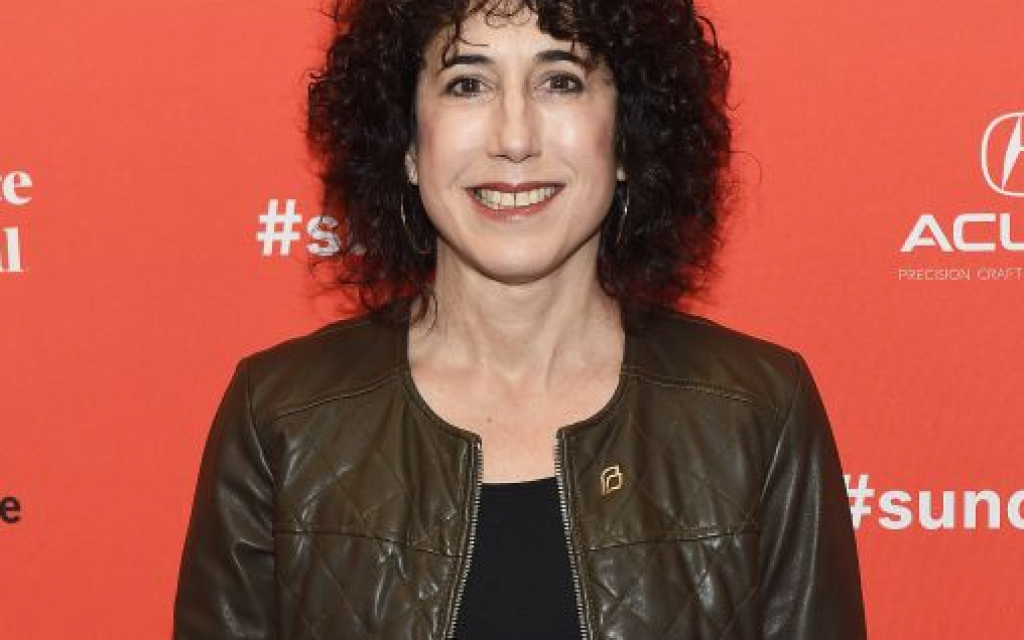‘The Tale:’ A Challenging Film About A Difficult Subject
Jennifer Fox, "The Tale's" director-writer exclusive interview about how her true-life story of sexual abuse at the age of 13 by 40-year-old coach inspired this movie.

“The Tale,” which was one of our Best Bets at the recent Atlanta Jewish Film Festival, is among the most honored of the dozens of films screened this year. It won for its star, Laura Dern, not only a Golden Globe Award, but renewed notice as an actress of extraordinary range and depth. She was the cover story of January’s Vanity Fair magazine and the film was nominated for a Primetime Emmy Award.
Just last week, the film’s director and the writer of the screenplay, Jennifer Fox, received nominations for her writing and directing at the Spirit Awards for independent film.
Fox’s true-life story of sexual abuse at the age of 13 by a respected 40-year-old athletic coach is told with unflinching realism that for some may be difficult to watch, yet, as she told me recently, it is a story that demands to be told.
AJT: What do you think this film has accomplished?
Fox: I think child sexual abuse is one of the taboos we have trouble even speaking about. And so, the first thing this film does is to open up the conversation. The second thing we tried to describe is that child sexual abuse is so much graver and more complex. So, if you don’t understand the complexity, you really don’t understand how it happened. The film really can open up a discussion of how complex it is when a child gets ensnared with a predator and the nuances of feeling that a child can go through.
AJT: As the film describes it, you lived with this abuse for years as an adult without fully facing it until you were in middle age. Why do you think it took so long for you to recognize what you had gone through?
Fox: Much of my life I had a story that I told myself. That story was that I chose to have this relationship, for better or worse, and that I got something from it. I got a sense of being special, of being loved. It wasn’t a forgotten memory. Much is in the film exactly as I remembered it, including whole patches of dialogue and the sex scenes.
That’s the story I told myself until I was about 45, when I was mature enough to be able to handle the fact that I could have been a victim.
At 45 was the first time I could actually admit to myself what happened to me. And that was the first time I used the word sexual abuse myself. And that’s when I decided to make a film about it.
AJT: The sex scenes between the 40-year-old man and the 13-year-old child are quite graphic. Do you think this could present a problem for audiences?
Fox: When I started to write this film, I knew that it would be a deal breaker not to show the sex scenes. I thought this was really useful because most films about child sexual abuse have this tendency to have the child and the adult walk into a room and fade to black or the adult makes the move towards the child and the film fades to black.
And I think that’s a way that audiences don’t have to grapple with what I would call the ordinary horror of it all. The abuse is like a bullet that shatters in you rather than a bullet that cuts cleanly through.
Children without their parental consent should not see this film. Obviously, it’s not shown in high schools, only colleges, but it’s a risk I thought was worth facing compared to the reward of being able to talk directly about what actually happened.

AJT: In the Jewish community, we don’t like to admit that we have any faults. Perhaps the problem of childhood sexual abuse is another problem that the Jewish community has not fully faced?
Fox: I totally agree with you. Totally agree. I think that our arrogance about who we are blinds us to what’s going on in our own backyard. In the 70s, my parents were blind to childhood sexual abuse. It just doesn’t happen in the Jewish community.
Anyway, we know all of that is false, and we have to keep gently facing forward and say we are not exempt from any human conditions, including all the negative ones.
AJT: Tell me about the very ambitious educational program that you’ve developed for your film.
Fox: So, the goal with this film was to do outreach and audience engagement. We have partnered with many important organizations; every one from Planned Parenthood to various psychological organizations … across the globe even. So that when the film came out it could be used immediately to spread awareness.
There’s a printed audience guide and there’s a facilitator guide that we’ve created. It gives some ideas of how you might use the film to prompt a conversation to look at child sex abuse and the issues of memory in a new way.
Anybody can request a free screening of the film. You just fill out a form. We schedule your screening, we send you everything you need at no cost to you.
For more information and to schedule a free screening of “The Tale,” www.hbo.com/movies/the-tale.



comments